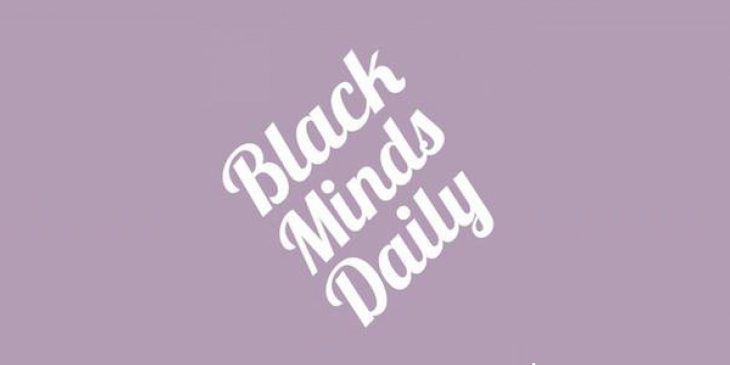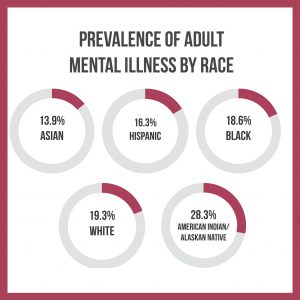
Black Minds Matter Too: UGA Student Starts Black Mental Health Organization

Forget all the stereotypes of mental illness. It has no face. It has no particular victim. Mental illness can affect any individual from any background and the black community is no exception. African Americans sometimes experience even more severe forms of mental health conditions because of unmet needs and barriers to treatment. According to the Office of Minority Health, African Americans are 20 percent more likely to experience serious mental health problems than the general population. That’s why UGA fourth year Majenneh Sengbe is taking action as the co-founder of her upcoming organization Black Minds Daily.
“Black Minds Daily started in honor of a late friend of mine that committed suicide… so I created this [organization] in honor of her to continue her legacy in some way and to bring awareness to mental health within black communities,” Sengbe says.
Black Minds Daily is an independent, organization that focuses on ending the negative stigma of mental illnesses within the black community and creating a safe space for African Americans to discuss mental health. Sengbe’s ultimate goal for the organization is to become a nonprofit in order to help people seek treatment in its various forms and eventually provide treatment to those who can’t afford it. For now, the organization is taking steps toward that goal by spreading awareness with their events, collaboration with UGA organizations and with their website and social media platforms like Facebook, Twitter and Instagram.
“I personally suffer from mental illness myself. I suffer from anxiety and I’ve experienced depression here and there… it’s something that affects me personally and it affects people around me…” Sengbe says.
When Sengbe first came to her father with the idea, he questioned why the organization catered only to black people rather than all people. Sengbe feels that when it comes to mental health, the black community is a vulnerable group that needs recognition because the effects of metal illness are oftentimes hidden.
 “Mental health awareness itself is very known. A lot of people talk about it all the time, but it’s never really addressed within the black community and that’s mainly where it needs to be addressed because you have increasing incarceration rates; you have increasing suicide rates of black children yet nobody is talking about it. No one is doing anything,” Sengbe says.
“Mental health awareness itself is very known. A lot of people talk about it all the time, but it’s never really addressed within the black community and that’s mainly where it needs to be addressed because you have increasing incarceration rates; you have increasing suicide rates of black children yet nobody is talking about it. No one is doing anything,” Sengbe says.
The U.S. Census Bureau found that though blacks only make up 13 percent of the United States population, they account for 40 percent of the U.S. incarcerated population. On top of that, an Urban Institute report found that more than half of all inmates in jails and state prisons have a mental illness of some kind. Furthermore, since the 1990s, suicide rates among black children have nearly doubled.
Recently, awareness of mental health in the black community has been a topic of conversation with celebrities like Chance the Rapper opening up about his anxiety, Oprah Winfrey addressing her mental illness, Kid Cudi’s post on Facebook about his battle with depression and suicidal urges and news about Kanye West’s hospitalization for his mental well-being. Still, Sengbe believes awareness of mental health in the black community remains stagnant.
“Even with those people trying to draw awareness it’s still not moving forward…They’re not as publicized as they could be,” Sengbe says.
“I feel like having these celebrities talking about [mental illness] is a step in the right direction, but it’s not making that huge of an impact.”
 According to the National Alliance on Mental Illness there’s not a lot of difference in the prevalence of mental illness across races, however, African Americans in particular face several barriers when it comes to treating their mental illness. The Pew Research Center found that poverty among blacks has fallen over the years, but still disproportionately affects the black community, decreasing their access to affordable health care. According to the U.S. Census Bureau, as of 2015, 11.1 percent of African Americans had no form of health insurance.
According to the National Alliance on Mental Illness there’s not a lot of difference in the prevalence of mental illness across races, however, African Americans in particular face several barriers when it comes to treating their mental illness. The Pew Research Center found that poverty among blacks has fallen over the years, but still disproportionately affects the black community, decreasing their access to affordable health care. According to the U.S. Census Bureau, as of 2015, 11.1 percent of African Americans had no form of health insurance.
Religion also plays a big role in why many blacks don’t seek treatment. Many African Americans turn to religion rather than professional help for their mental illness.
“Like anything else, if you’re not putting in effort to heal you’re not going to heal.” Sengbe says.
“Simply praying doesn’t solve the problem and I think that’s where a lot of people find frustrations when dealing with mental illnesses because you’re being told if you pray to God and rely on your faith, then that is enough to solve any problem, mental illnesses included…”

It’s barriers such as these that motivates Sengbe to continue her work with Black Minds Daily and become an official nonprofit.
“…we’re hoping to spread this information and hopefully reach someone, anyone and get them thinking about their mental health or thinking about pursuing treatment…” Sengbe says.
Mental illness can come with stigma in any case, deterring people from seeking help. However, through education and awareness, stigma can be reduced, allowing individuals to openly embrace their mental health.
Listen to our supplementary podcast episode below: